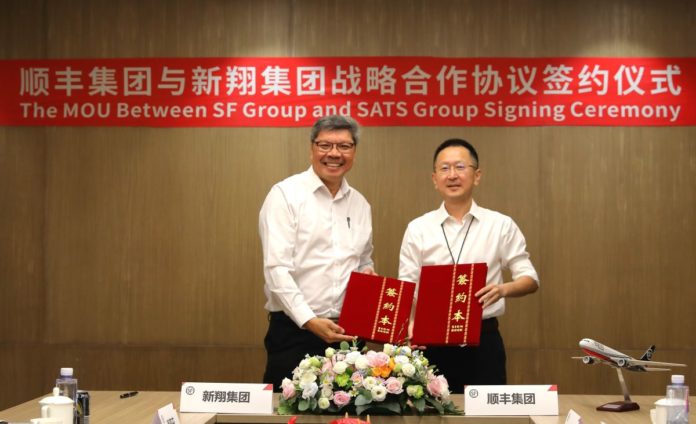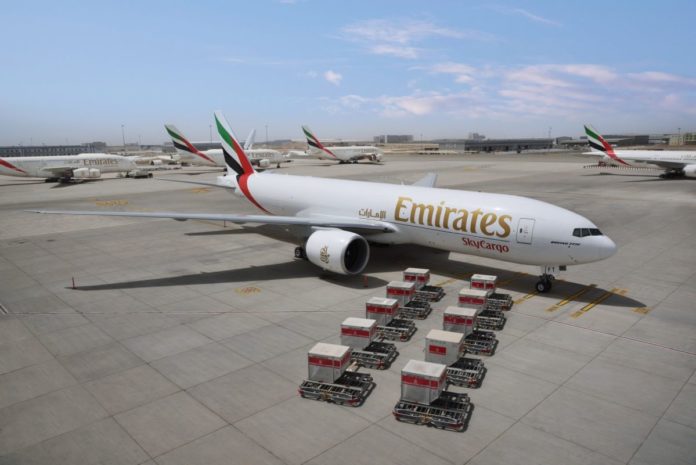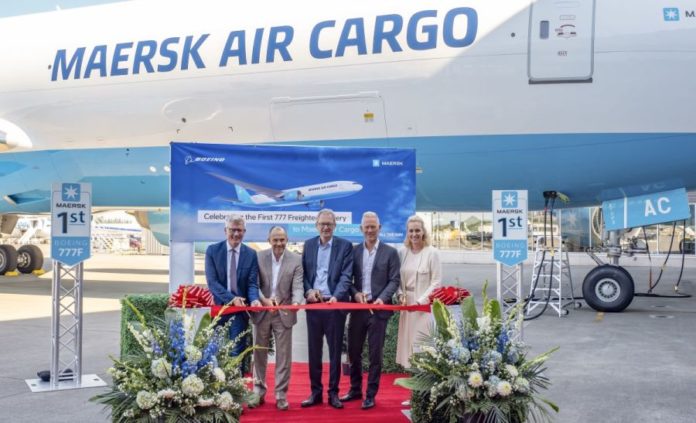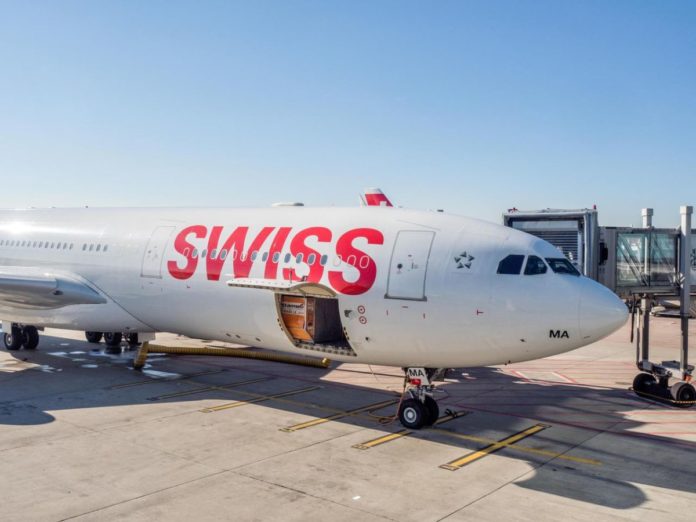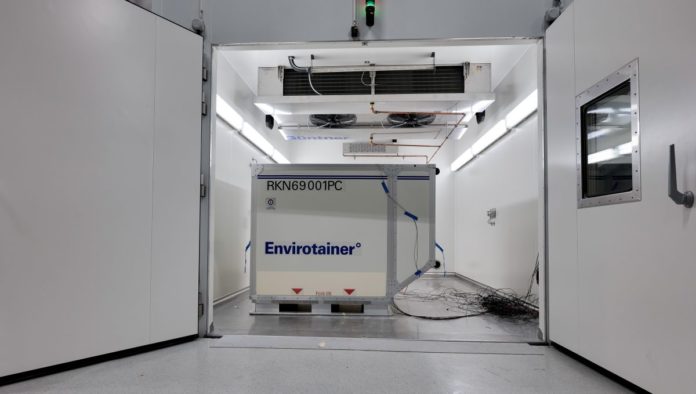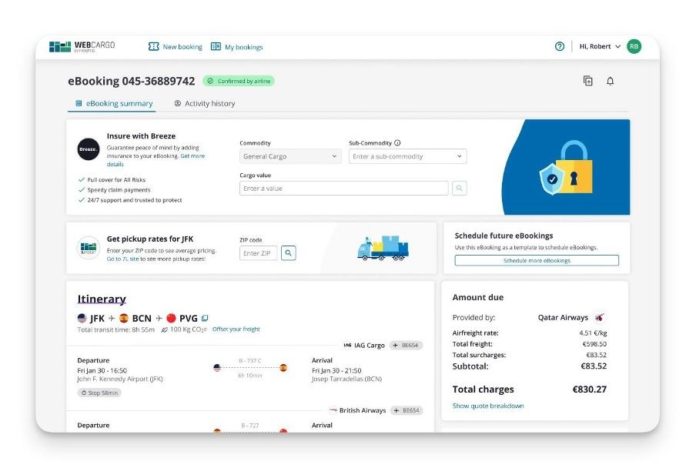Maersk Air Cargo took delivery of the one of two new Boeing 777F freighters, the first of the type to be owned by a Danish airline at Boeing’s headquarters in Seattle. Maersk Air Cargo is a part of global logistics company AP Moller- Maersk (Maersk).
The aircraft is arrived at its home airport of Billund on 13 July.
Maersk Air says that both aircraft will be deployed on its existing Europe-China route with initially three flights a week, increasing later up to six weekly.
Delivery of the second 777F is scheduled for later in the third quarter of this year and will bring Maersk Air Cargo’s owned controlled fleet to 22 aircraft, including 20 Boeing 767Fs.
Head of Maersk Air Cargo., Lars Jordahn, said: “We are entering the premier league of cargo aviation. The B777F can transport more than double of payload on each flight compared to our 767Fs, and it is the most fuel-efficient aircraft in the world with the GE90 engines.”
Executive Vice President and Chief Product Officer (CPO) for Logistics and Services at Maersk, Narin Phol, described the two Boeing 777Fs as “a giant leap in terms of what we can offer our air freight customers. Besides enabling a much more efficient route structuring our 777Fs will improve the availability of space for our customers as we see a growing demand for integrated supply chain solutions which include air.”
He added: “Due to the disruptive environment in logistics, a rising number of cargo owners are choosing to reduce the number of service providers in their supply chain. Increased visibility across fewer providers enables the cargo owners to react more swiftly and much better informed in case of disruption. Availability of air freight capacity and full asset control are important aspects here.”
The Boeing 777F can fly up to 9,200 kilometers (4,970 nautical miles) and carry a maximum payload of 102 tonnes. The main deck fits pallets up to 3 metres high, and all cargo decks are temperature controlled.






